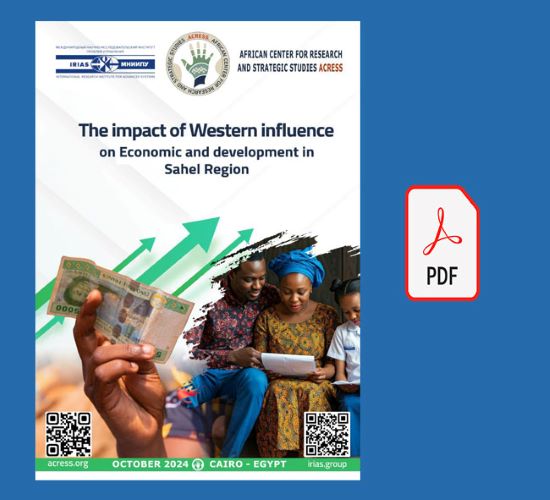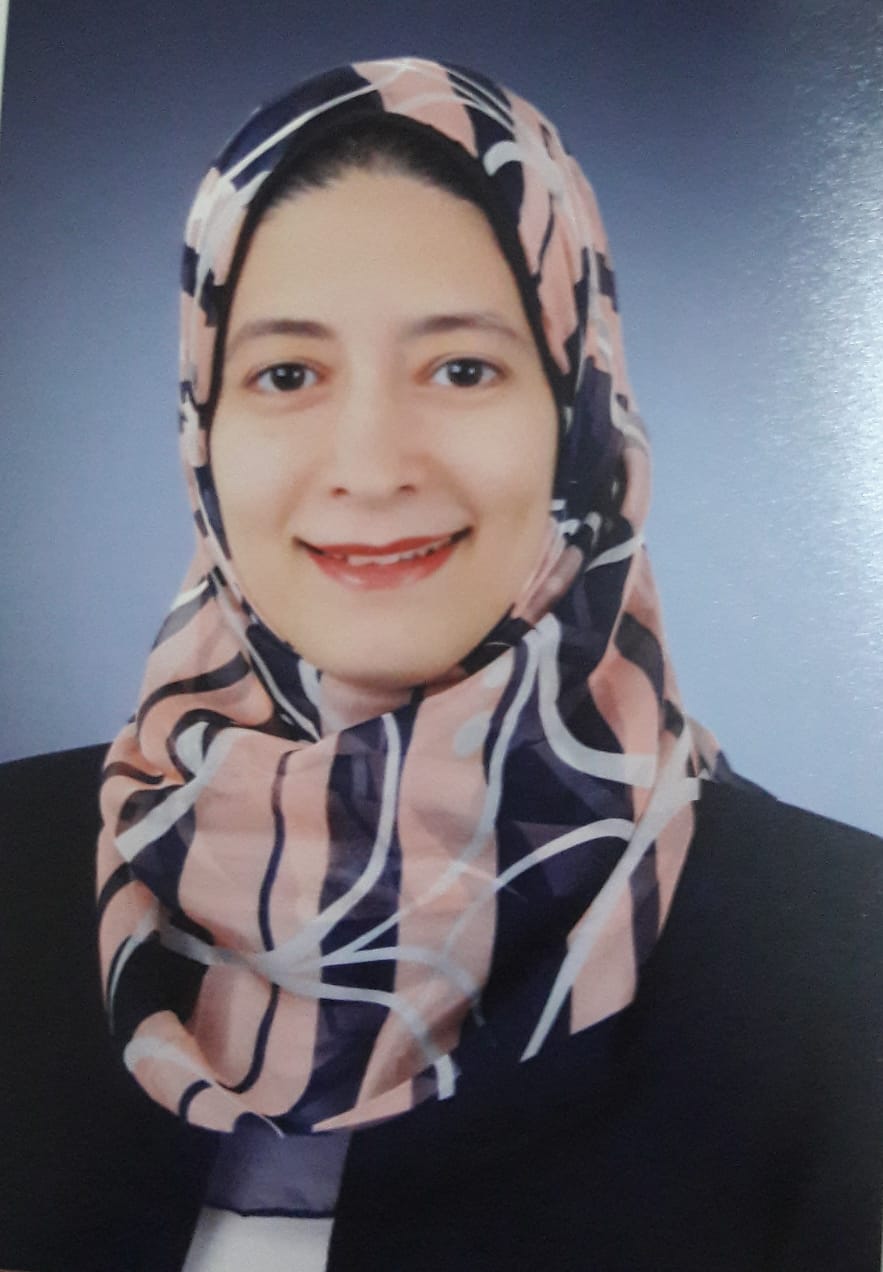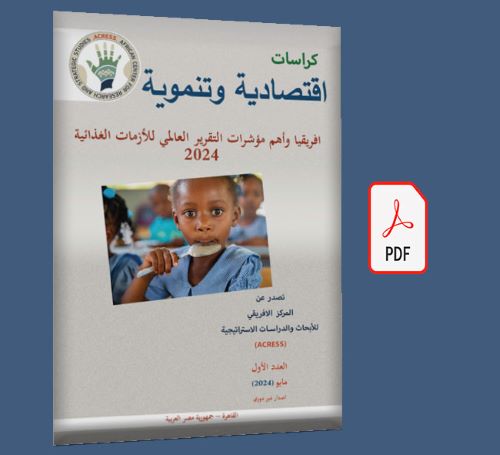
The African Center for Research and Strategic Studies (ACRESS) has issued a report on “The Impact of Western Influence on the Economy and Development in the Sahel Region”. The report discusses sensitive topics and issues that are currently emerging on the African scene in general and the Sahel region in particular.
Western influence and dominance over former colonies, particularly in West Africa, persisted even after these countries gained political independence. This continued through linking their monetary and financial policies with the former colonizer, who transitioned into an economic and trade partner. As a result, this new partner secured exclusive contracts to exploit the wealth of these countries in exchange for promises of economic development for the African communities. Not only that, but this new partner also ensured its supervision and control over the national currency of these countries, both before and after the withdrawal agreements from the former colonies, by linking it to the French currency and naming it the "CFA Franc," specifically in 1945.The declared aim was to achieve financial stability economic growth and to control inflation rates in CFA countries.
Decades have passed since this influence and control over the monetary and economic assets of West African nations, but has this translated into development and progress for these countries? To answer this question, the African Center for Research and Strategic Studies (ACRESS), in cooperation with the International Research Institute for Advanced Systems (IRIAS) in Moscow, organized a symposium in Cairo on Sunday, August 25, 2024, titled “The Impact of Western Influence on the Economy and Development in Sahel Region.”
This report stems from that symposium and contains several research papers addressing three main themes:
- An analysis of the monetary subordination of the CFA Franc and its impact on the financial and monetary policies of the Sahel region.
- The impact of colonial policies on the current governmental administrative systems in the Sahel region.
- Finally, the hoped-for Russian role in the development of the Sahel region amid mutual gains.
Regarding the first theme, all international indicators point to low levels of human and economic development in the Sahel region compared to other nations, especially when the potential and natural resources of these countries—such as precious metals like gold in Mali and Burkina Faso or energy sources like oil and uranium in Niger—are compared with their gross domestic product, industrial infrastructure, or technological advancements. As will be apparent to those reading the report, particularly in the research presented by researcher Mohamed El-Tamawy on the analysis of monetary subordination and the impact of the CFA Franc on the financial and monetary policies of African countries, this currency and the system governing it have had many negative impacts that hinder development and growth.
Regarding the second theme, it was evident that the Sahel countries inherited not only monetary subordination from the former colonizer but also an administrative structure for the state’s governmental apparatus characterized by extreme centralization and bureaucracy. This facilitated the spread of corruption, which continues to drain the resources of Sahel countries to this day, and entrenched favoritism in holding public offices and government jobs at the expense of merit. Political relationships and tribal ties became the gateway to promotion or appointment to a political position, or the acquisition of influence, and conversely. In other words, political influence and public office became means of accumulating wealth, as detailed in the report regarding the cases of Chad, Niger, and Burkina Faso.
The third theme discusses the hoped-for Russian role in the development of the Sahel region. There is no doubt that Russia has played a significant role over the past three years in enhancing the military capabilities of the national armies in the three Sahel countries of Mali, Niger, and Burkina Faso, whether in terms of weaponry or military training. This has doubled their ability to engage in real confrontations to eradicate terrorist strongholds.
But, the African Center for Research and Strategic Studies (ACRESS) believes that the opportunity is now open for both Sahel countries and the Russian Federation to expand their cooperation to include other areas that would be mutually beneficial in a win-win scenario. If the focus in previous periods was solely on military and nuclear cooperation, there are now other opportunities for investment in sectors such as education, healthcare, and more. Therefore, the research presented by researcher Omar Al-Bastanji came to provide a comprehensive explanation of the potential of the five countries of the African Sahel region, as well as the opportunities and sectors available for investment in those countries.
In addition to the views of two experts in African affairs in political science, law and economics through the vision and commentary of Prof. Mohamed Ashour, Professor of Political Science and International Law at Cairo University, and Prof. Jonathan Aremu, Professor of International Economic Relations; Vice Chancellor of Covenant University (CU), Ota, Nigeria, Advisor to the Economic Community of West African States (ECOWAS) Common Investment Market (ECIM), Abuja.
The report is available in Arabic and English. To download the English version of the report, please click here. 👇
Citation: Ghada Fouad (Editor), the impact of Western influence on economy and development in Sahel region Report, (Cairo: African Centre for Research and Strategic Studies (ACRESS), International Research Institute for Advanced Systems (IRIAS), October 2024).
 ar
ar
 fr
fr



